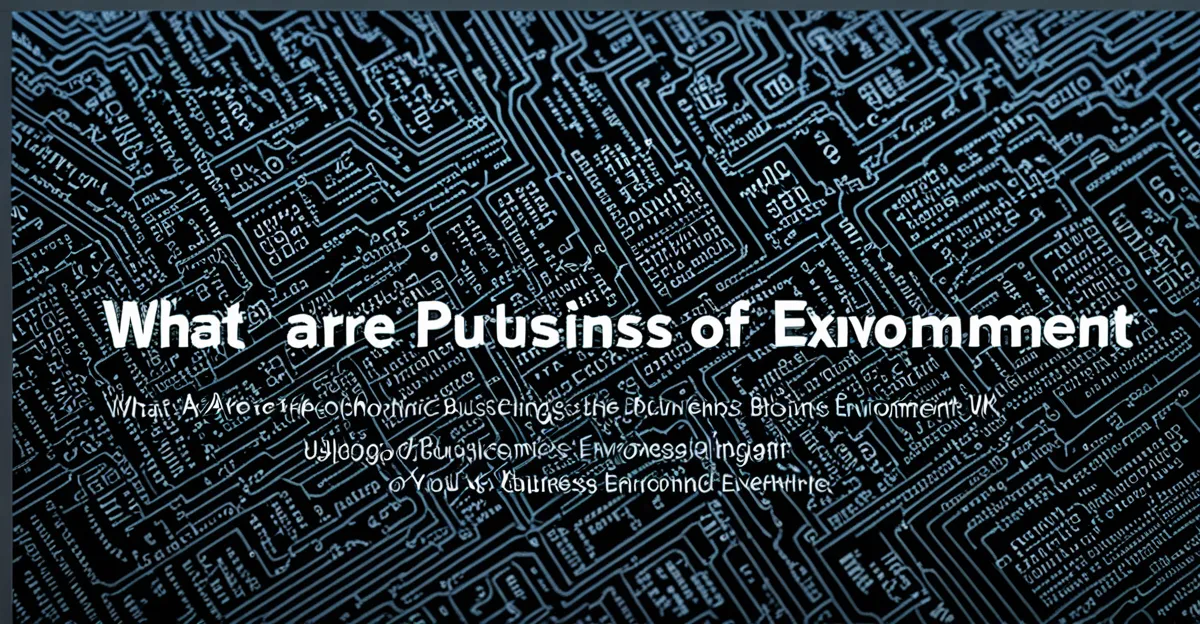Key Forces Driving Transformation in UK Business
The transformation of UK businesses today is driven by several pivotal forces reshaping how companies operate and compete. Technology adoption stands at the forefront, with automation and artificial intelligence (AI) revolutionising operations. AI in UK business enables streamlined processes, improved data analysis, and reduces manual labour, directly impacting productivity and innovation. For example, machine learning algorithms assist in predictive maintenance and customer insights, enhancing decision-making precision.
Parallel to technological shifts is the evolving post-Brexit regulatory environment. UK business trends reveal that enterprises must navigate new trade rules, tariffs, and compliance standards, which affect supply chain dynamics and market access. The need for regulatory agility is critical for future of UK businesses, influencing how firms plan cross-border operations and mitigate risks.
Additional reading : What Are the Potential Challenges Faced by UK Startups in 2024?
Additionally, a heightened focus on environmental, social, and governance (ESG) standards is transforming business priorities. ESG compliance is now integral for securing investment and maintaining reputational capital. Businesses are increasingly incorporating sustainable practices and transparent governance frameworks, aligning with UK-wide sustainability trends and responding to stakeholder demands. Together, these factors form the cornerstone of business transformation factors in the UK landscape, necessitating adaptive strategies for sustained growth.
Innovation Accelerators: Technology and Digital Transformation
Technology adoption, particularly AI in UK business, is a key engine driving digital transformation UK. Artificial intelligence, machine learning, and automation are increasingly embedded in sectors like finance, healthcare, and manufacturing, enhancing productivity, accuracy, and customer experience. For instance, AI’s role in automating routine tasks reduces manual errors and frees up workforce capacity for innovation-focused activities—a crucial business innovation UK benefit.
In the same genre : What Future Opportunities Can UK Businesses Explore in the Next Decade?
The expansion of digital infrastructure supports this shift, enabling faster data processing and more reliable digital services essential for scaling operations. Cloud computing and 5G networks are critical enablers, facilitating seamless remote access and integration. The rise of hybrid and remote work models transforms the digital workspace, fostering flexibility but requiring robust cybersecurity and collaboration tools.
These trends reflect how digital transformation UK not only improves operational efficiency but also reshapes organizational culture and talent strategies. Companies embracing AI and automation position themselves competitively, aligning with broader UK business trends focused on agility and innovation. This melding of technology with evolving work dynamics is fundamental in shaping the future of UK businesses, empowering them to harness new opportunities while navigating digital disruption effectively.
Sustainability and ESG as Central Pillars
Sustainability trends UK place ESG business UK at the heart of modern corporate strategy. Businesses increasingly prioritise sustainable business practices not only to comply with regulations but also to attract investment. ESG compliance measures demonstrate transparent governance, social responsibility, and environmental stewardship, which are now critical for maintaining trust with stakeholders.
Decarbonisation efforts are shifting supply chains toward more sustainable models. Companies focus on reducing carbon emissions at every stage—from sourcing raw materials to distribution—aligning with national goals to meet climate targets. This realignment also responds to growing consumer and investor demand for greener products and services.
Government regulations further reinforce ESG business UK by setting clear standards and encouraging green finance initiatives. Financial support and incentives for eco-friendly projects help businesses transition sustainably without compromising competitiveness. As a result, sustainability trends UK are reshaping operational priorities, embedding long-term responsibility into core business models.
The growing ESG focus signals a fundamental change in how UK businesses operate, blending profitability with purpose. Companies that adopt rigorous ESG business UK standards are better positioned to thrive within evolving market expectations and contribute positively to broader environmental and social objectives.
Economic and Workforce Evolution Shaping Strategies
UK economic trends are currently characterised by inflationary pressures and rising interest rates, posing significant challenges for business adaptation. Companies must incorporate these factors into strategic planning to maintain financial stability and forecast accurately. Economic uncertainty compels firms to develop flexible budgets and contingency plans to respond swiftly to market fluctuations.
Workforce transformation UK is another critical force reshaping strategies. Skills shortages, particularly in digital and technical fields, create recruitment complexities. Upskilling existing employees has become essential to fill gaps and sustain productivity. Moreover, talent retention strategies must evolve to address changing employee expectations around hybrid work and career development.
Sectoral shifts after the pandemic highlight growth in technology-driven industries, logistics, and green energy, while some traditional sectors face decline. Businesses need to scan the horizon for emerging opportunities and pivot accordingly. This sectoral realignment stresses the importance of adaptable business models aligned with UK economic trends to secure long-term resilience.
In sum, navigating complex economic conditions while evolving workforce capabilities enables companies to thrive amid transformation. Strategy must prioritise agility, skill enhancement, and market responsiveness to capitalise on emerging UK business trends effectively.
Adapting for Competitive Advantage: Strategic Recommendations
Strategic adaptability is essential for business adaptability UK in a rapidly evolving market. Embracing cutting-edge technology and digital tools enhances operational efficiency and fosters future-proofing business models. For example, integrating AI-powered analytics guides data-driven decision making, enabling companies to anticipate trends and respond proactively.
Developing agile business models allows firms to quickly pivot amid disruptions. This involves continuous process improvement, flexible resource allocation, and diversification to mitigate risks. Combining these elements builds resilience against economic uncertainties and regulatory shifts.
Moreover, drawing on expert insights and industry research sharpens competitive strategies UK. Informed perspectives reveal emerging opportunities and best practices tailored to specific sectors. Businesses that leverage such knowledge position themselves to innovate effectively and sustain long-term growth.
In sum, prioritising innovation adoption, agility, and informed planning equips UK enterprises to maintain a competitive edge. This comprehensive approach aligns with overarching future of UK businesses trends, supporting robust transformation and success in dynamic environments.










